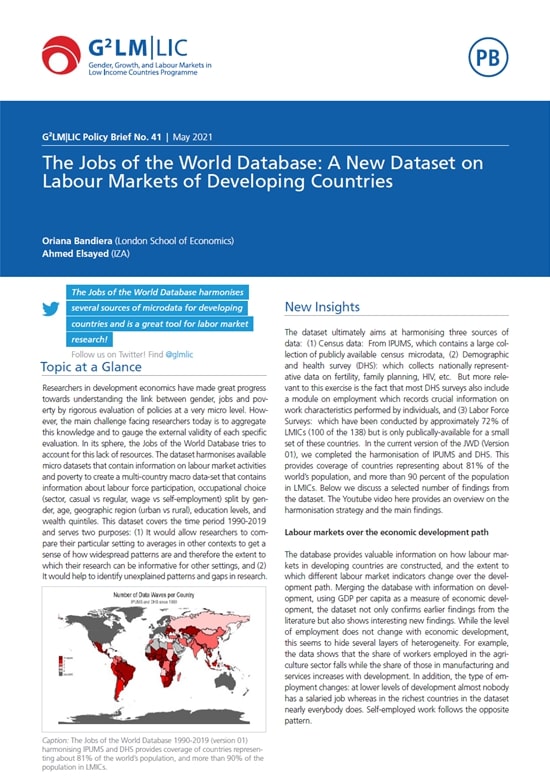Researchers in development economics have made great progress towards understanding the link between gender, jobs and poverty by rigorous evaluation of policies at a very micro level. However, the main challenge facing researchers today is to aggregate this knowledge and to gauge the external validity of each specific evaluation. In its sphere, the Jobs of the World Database tries to account for this lack of resources. The dataset harmonises available micro datasets that contain information on labour market activities and poverty to create a multi-country macro data-set that contains information about labour force participation, occupational choice (sector, casual vs regular, wage vs self-employment) split by gender, age, geographic region (urban vs rural), education levels, and wealth quintiles. This dataset covers the time period 1990-2019 and serves two purposes: (1) It would allow researchers to compare their particular setting to averages in other contexts to get a sense of how widespread patterns are and therefore the extent to which their research can be informative for other settings, and (2) It would help to identify unexplained patterns and gaps in research.
